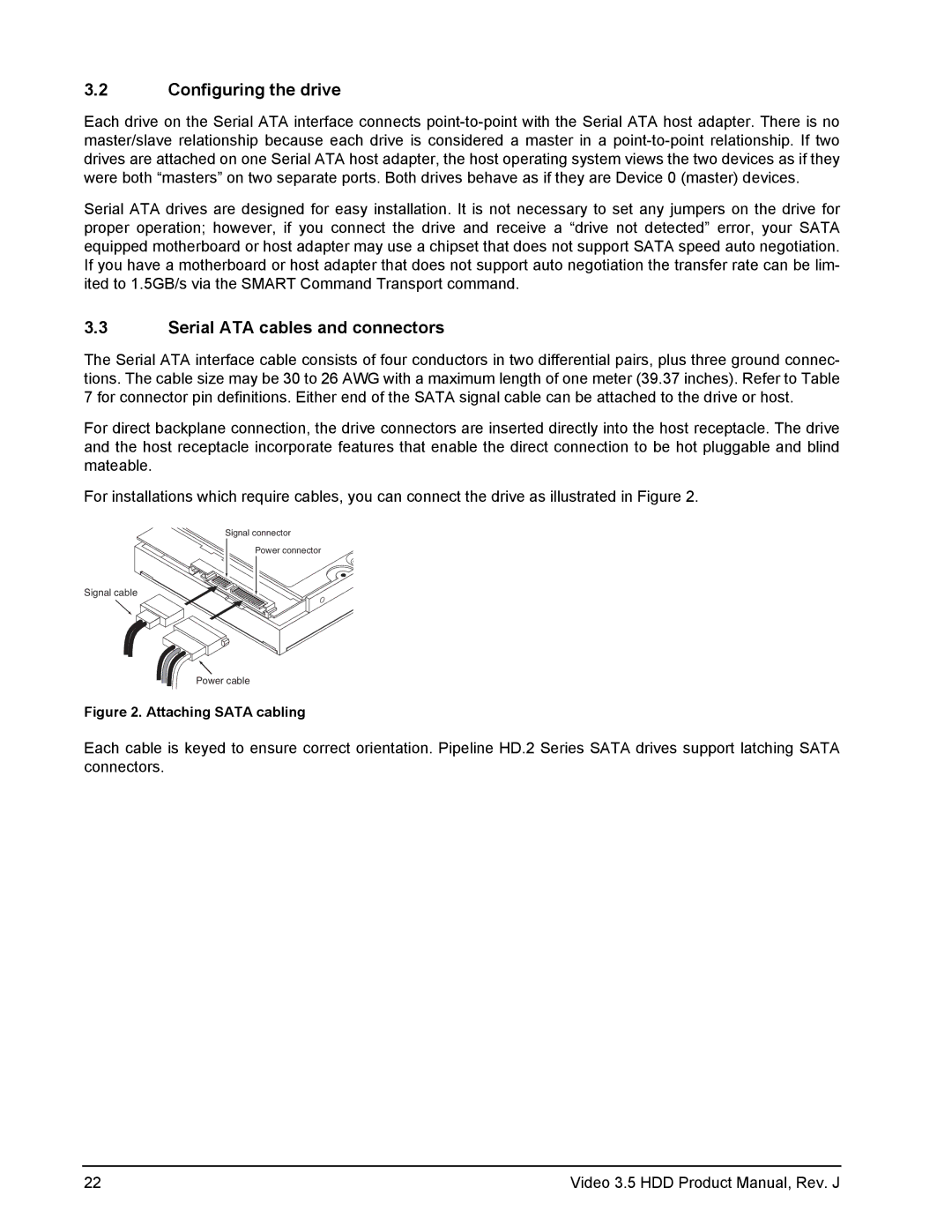
3.2Configuring the drive
Each drive on the Serial ATA interface connects
Serial ATA drives are designed for easy installation. It is not necessary to set any jumpers on the drive for proper operation; however, if you connect the drive and receive a “drive not detected” error, your SATA equipped motherboard or host adapter may use a chipset that does not support SATA speed auto negotiation. If you have a motherboard or host adapter that does not support auto negotiation the transfer rate can be lim- ited to 1.5GB/s via the SMART Command Transport command.
3.3Serial ATA cables and connectors
The Serial ATA interface cable consists of four conductors in two differential pairs, plus three ground connec- tions. The cable size may be 30 to 26 AWG with a maximum length of one meter (39.37 inches). Refer to Table 7 for connector pin definitions. Either end of the SATA signal cable can be attached to the drive or host.
For direct backplane connection, the drive connectors are inserted directly into the host receptacle. The drive and the host receptacle incorporate features that enable the direct connection to be hot pluggable and blind mateable.
For installations which require cables, you can connect the drive as illustrated in Figure 2.
Signal connector
Power connector
Signal cable
Power cable
Figure 2. Attaching SATA cabling
Each cable is keyed to ensure correct orientation. Pipeline HD.2 Series SATA drives support latching SATA connectors.
22 | Video 3.5 HDD Product Manual, Rev. J |
